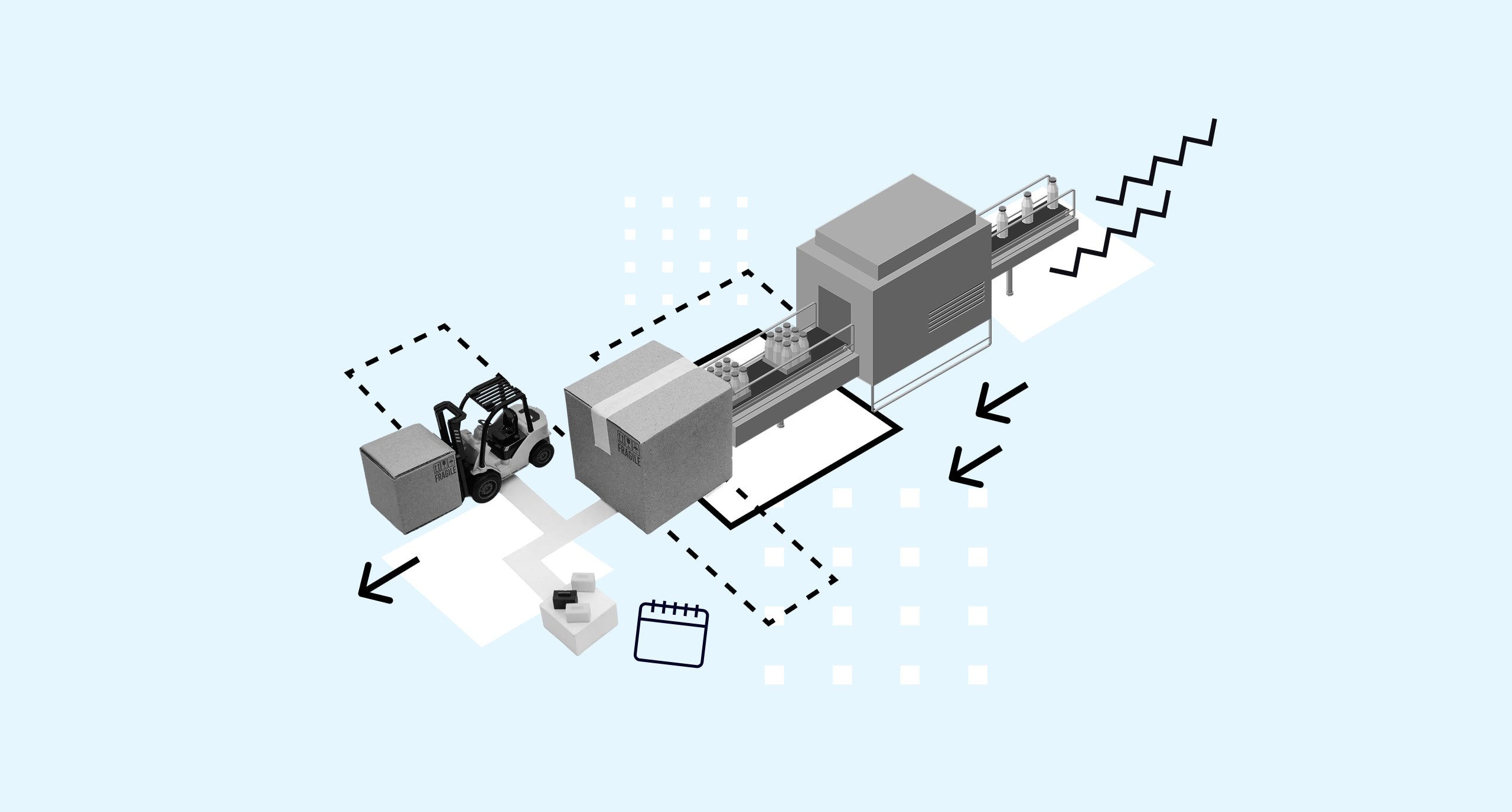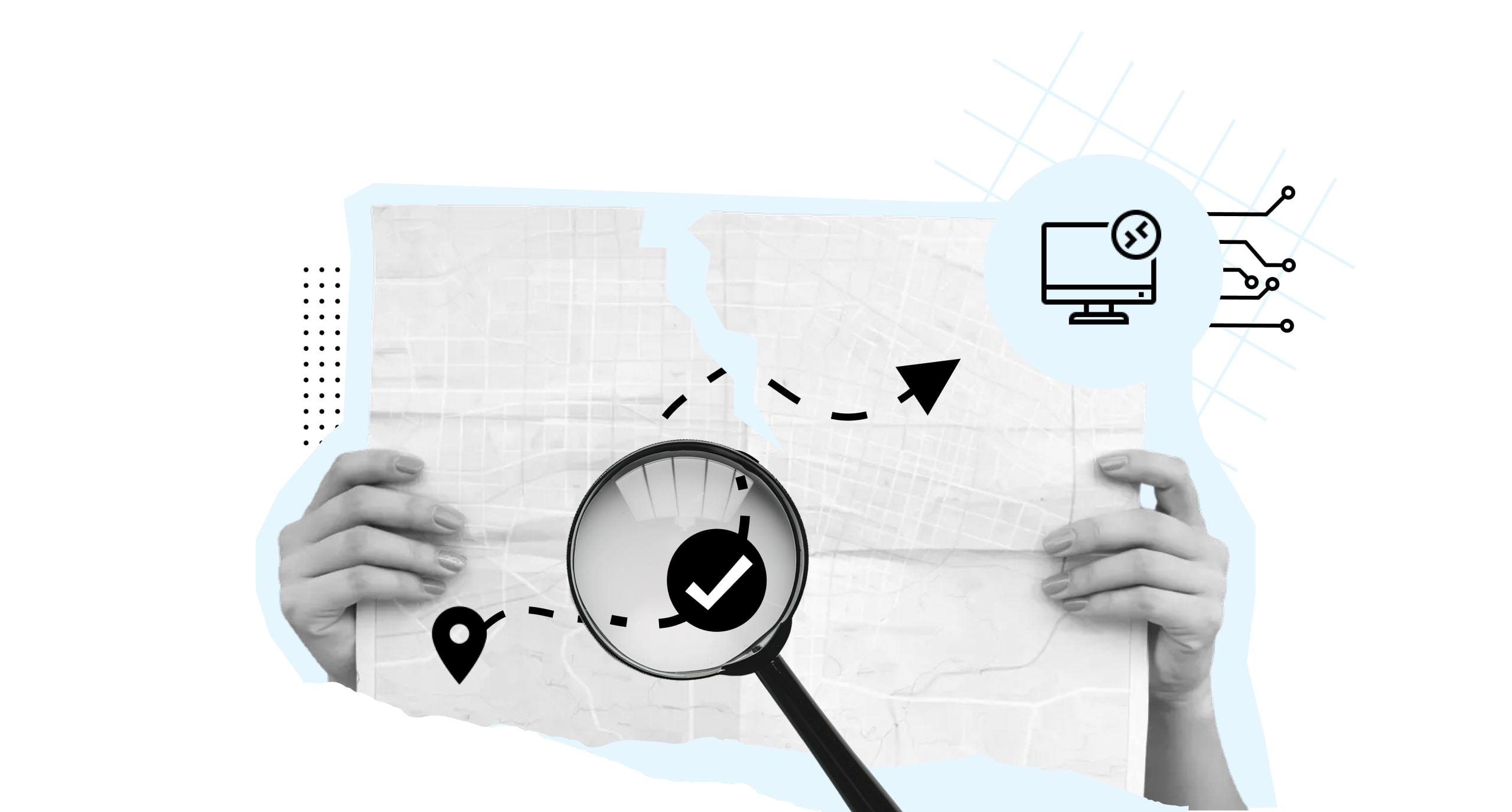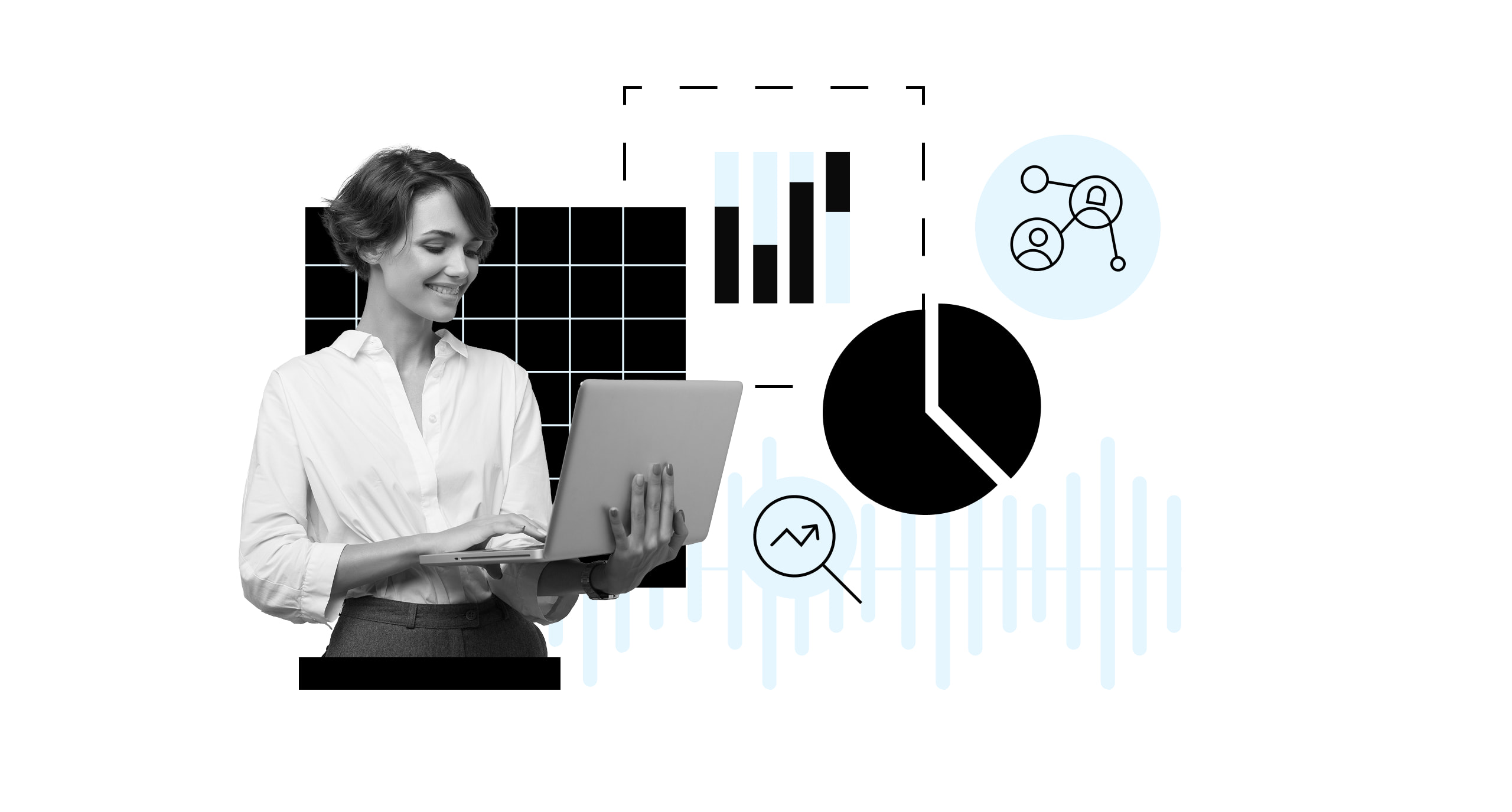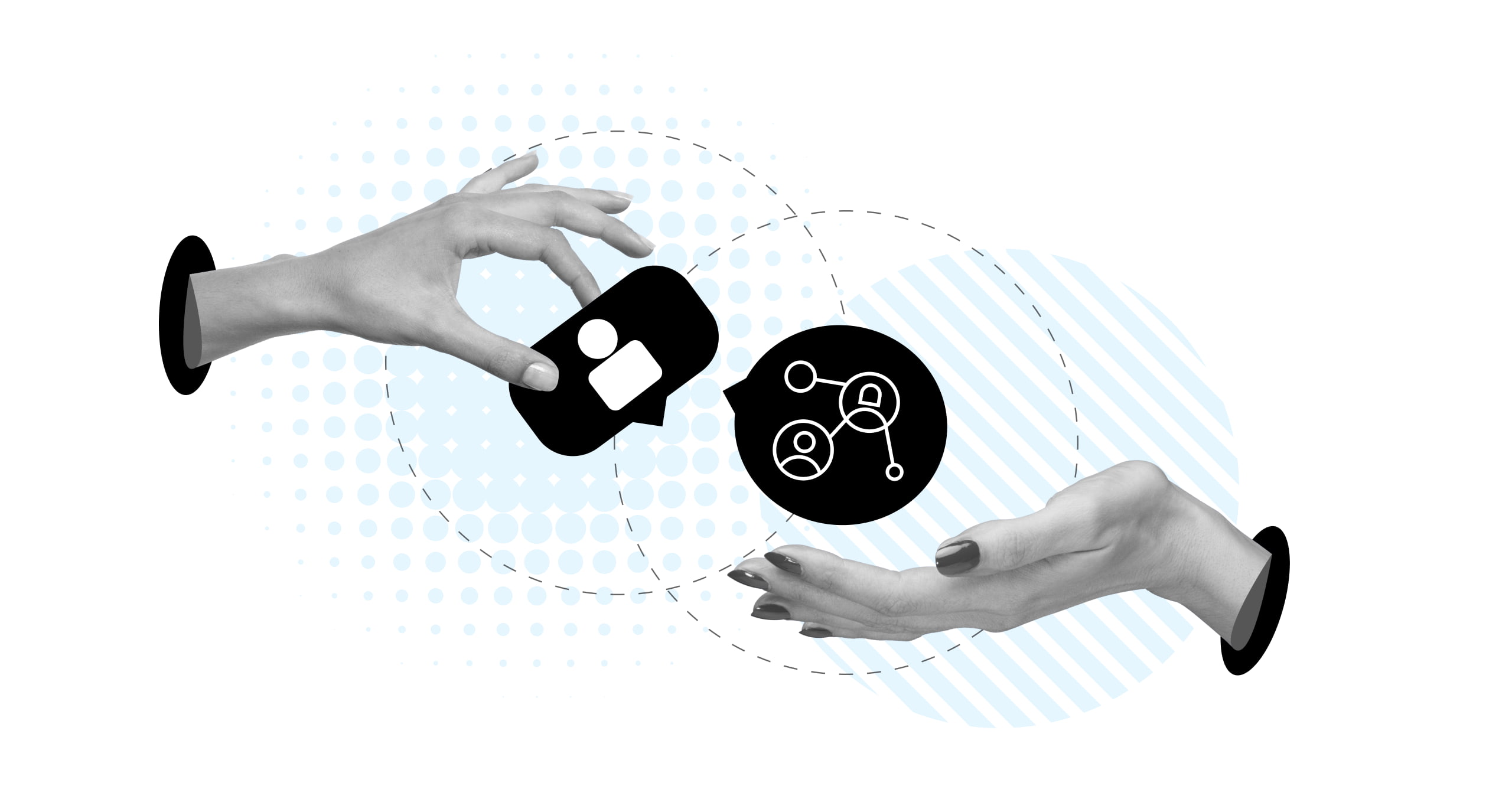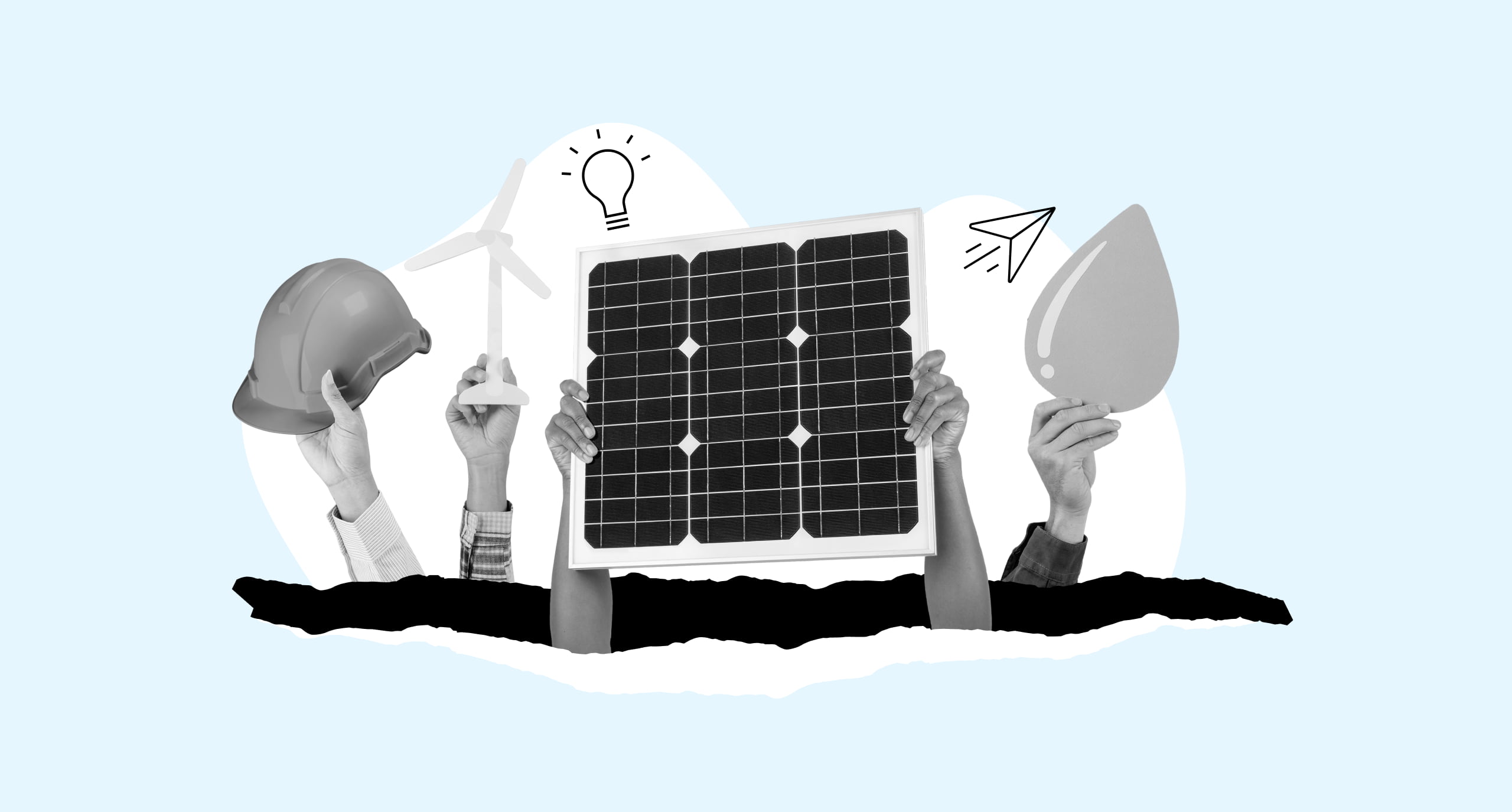Trends in tech continue pushing us towards Artificial Intelligence. But, in spite of speculation over career security, we should spend our energy understanding AI tech jobs and how we can adapt quickly to change.
There will be a great AI impact on jobs in many fields. All we can do is respond positively. With that in mind, let’s review the shifts to be expected in the coming years.
Will AI replace tech jobs?
We’ll start on a positive: Market research analysts say AI will drive positive change across society. Who can argue with a future of enhanced productivity, improved healthcare and more accessible education? McKinsey now predicts AI will boost the global economy by around $13 trillion by 2030, which means some 16% higher cumulative GDP compared with today. AI and tech jobs will be central to this growth—which is important phrasing, as AI will rewire job requirements, rather than replacing tech professionals altogether.
“I’ve seen people saying there will be no need for computer science in the future, because AI can write all the code. That’s like saying learning English is the same thing as being able to write Shakespeare,” Ikhlaq Sidhu, Dean of IE School of Science & Technology.

We’re looking at adaptation rather than replacement. For context, a report states that by 2050, 60% of current jobs will have significantly adapted to AI. Automation and intelligent systems will become an integral part of the workplace, which is positive. In fact, over the next five years, it’s estimated that 19 million jobs will be created globally while 9 million will be lost. That’s a net gain.
As for what jobs will AI replace? It’s true that anything depending on automated output—like customer service representatives, receptionists and potentially paralegals and accountants—will see changes. Due to AI’s strengths in manipulating datasets to create “new” standardized assets, we’ll see fewer opportunities in specific areas of software engineering and content creation. You’ll also see areas where machine learning can provide precision beyond human capability, such as the use of Spatial AI in surgery.
But that doesn’t necessarily apply to all tech jobs. Despite AI-driven shifts within the software industry, the US Bureau of Labor Statistics still estimates a growth in software developer jobs from 17.9% from 2023 to 2033. And other computer-related roles like database architects and cybersecurity experts will also be in high demand.
What tech jobs are safe from AI?
Let’s zoom in on what tech jobs are safe from AI. Because, while we know new tech can write code, our current forms of Narrow AI are not self-replicable. And there are things that AI still does poorly that balance what it does well.
With anything that involves organizing data—providing it’s good data—you can bet that AI will be faster and more efficient. That’s why it’s so good at writing code or predictive analytics. If you need to find trends in anything and interpret it in an automatic way, then AI can help.
But AI’s understanding of context is limited. This means it’s useless for tasks that require abstract thinking and creativity. The same applies for emotional intelligence—AI can’t solve tasks requiring empathy or teamwork. Add in AI’s difficulties in assessing morality and it’s clear that we can’t rely on it for any high-risk situation that involves human decision. So, regardless of the specific job roles we mention, bear in mind we still need humans to guide tech departments through safety, fairness and ethics.
Now, here are a few tech jobs AI will help thrive.
1. AI / Machine Learning Engineers & Researchers
AI and ML Engineers and Researchers are among the most secure roles in tech—because they’re the ones building the systems. These jobs demand deep expertise and problem-solving that AI can’t handle alone. With research roles set to grow 26% by 2032 and demand rising fast, the outlook is strong.
2. Data Scientists (Insight-Driven)
Data Scientists turn data into insights that drive real decisions. AI can crunch numbers, but it can’t interpret them in context or tell the story behind them. As AI handles routine tasks, data scientists are moving into more strategic roles—keeping demand high.
3. Cybersecurity Strategists & Ethical Hackers
Cybersecurity Strategists and Ethical Hackers play a critical role in outsmarting evolving threats. AI lacks the creativity and foresight needed to stay ahead of complex, often AI-driven attacks. With a 33% job growth forecast and new roles like AI security analysts emerging, demand is only increasing.
4. Software & Cloud Architects
Software and Cloud Architects shape the big-picture design of systems and infrastructure. AI can’t match the strategic thinking or judgment these roles demand. As more systems scale and move to the cloud, the need for experienced architects keeps rising.
5. IT Infrastructure & Site-Reliability Leaders
IT Infrastructure and Site-Reliability Leaders ensure systems run securely and efficiently. AI can help monitor, but it can’t replace human judgment in planning, problem-solving, or system design. As tech grows more complex, demand for these roles keeps rising.
6. AI Ethics & Governance Specialists
AI Ethics and Governance Specialists build the rules that keep AI responsible and safe. This work demands human judgment across tech, law, and ethics—something AI can’t provide. As regulation ramps up, demand for these roles is rising fast, with talent in short supply.
7. Product Managers
Product Managers guide a product from idea to launch, balancing user needs, business goals, and team coordination. AI can help with tasks, but it can’t lead with vision or empathy. That’s why strong human product leadership is still in high demand.
8. Human-Centered UX / UI Designers
Human-Centered UX/UI Designers create intuitive, inclusive experiences AI can’t replicate. While AI can build layouts, it doesn’t grasp emotion, behavior, or usability. With growing focus on accessibility and research-driven design, demand for skilled designers stays strong.
What are the highest-paying AI-related tech jobs?
While many jobs will adapt, some roles are set to thrive in a new-look world of tech. The following are 10 AI tech jobs which are garnering the highest average paycheck in the US as of 2025, organized in ascending order.
1. AI Engineer: $136,401
2. Deep Learning Engineer: $147,563
3. Business Development Manager: $149,863
4. Data Scientist: $151,351
5. Machine Learning Engineer: $156,299
6. Computer Vision Engineer: $158,923
7. Natural Language Processing Engineer: $159,255
8. AI Product Manager: $183,960
9. AI Research Scientist: $187,529
10. AI Consultant: $200,516
As you can see, the highest-paying AI jobs blend deep technical skill with strategic or cross-functional work. AI engineers, computer vision specialists and deep learning experts earn top salaries thanks to their niche expertise in machine learning and data analysis. Meanwhile, AI product managers, business developers and consultants command higher paychecks by connecting tech teams with business goals. Across the board, strong programming, stats and AI know-how—combined with real-world application—drive the biggest rewards.
What skills are needed to work with AI in tech?
The AI augmentation model will be critical in integrating AI with tech jobs. The model relies on teaching humans how to use AI in a skilled way. It’s why 77% of employers are planning to actively train workers in using AI—much like IE University’s commitment to integrating it at every level of the community.
Entry-level roles will change or disappear, making education in hard skills more important than ever. Gartner warns that middle management jobs could shrink too, especially as AI flattens workplace hierarchies. This means tech professionals must commit to continuous learning beyond knowing the latest tools.
Aim to be T-shaped. Go deep in one technical area while building a broad base of knowledge in a variety of skills. This will make you a specialist who’s adaptable to work across different teams.
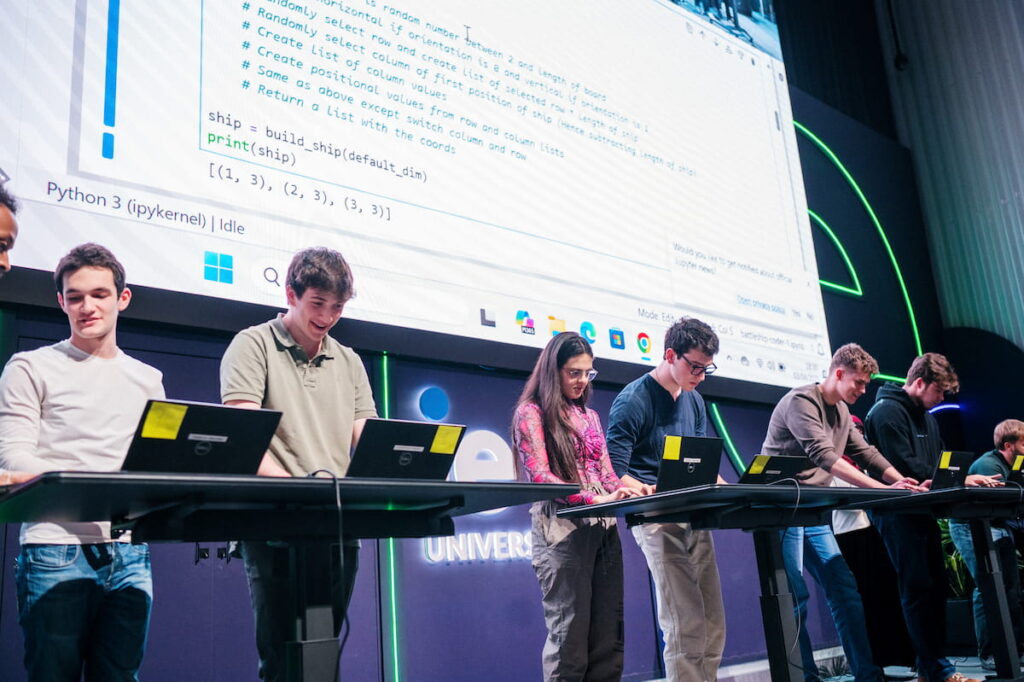
Key technical skills for AI include programming languages like Python, R, and Java, which are essential for building and deploying models. A solid understanding of machine learning and deep learning concepts—such as supervised learning, large language models (LLMs), and generative AI—is crucial. Data skills are equally important, including the ability to clean, process, and manage large datasets using tools like Spark and Hadoop. Underpinning all of this is a strong foundation in math, particularly linear algebra, calculus, and statistics, which supports everything from training models to evaluating their performance.
But soft skills matter just as much. Clear communication is vital for explaining complex ideas to non-technical teams, while collaboration is necessary because AI projects often require working across multiple disciplines. Creativity and logical thinking are key for designing innovative algorithms and troubleshooting problems. Since technology changes quickly, adaptability is essential—professionals who embrace new tools, roles, and workflows will stay ahead. While AI can handle many routine tasks, humans remain critical, especially in areas like testing, auditing, and ethical AI development.
Will tech jobs be automated on a broad scale? It’s too soon to tell. But in the near future, there’s plenty of opportunity to go round.
Access AI tech jobs with IE School of Science & Technology
Stay ahead of the curve with an industry-relevant education in Artificial Intelligence, data and automation.

Benjamin is the editor of Uncover IE. His writing is featured in the LAMDA Verse and Prose Anthology Vol. 19, The Primer and Moonflake Press. Benjamin provided translation for “FalseStuff: La Muerte de las Musas”, winner of Best Theatre Show at the Max Awards 2024.
Benjamin was shortlisted for the Bristol Old Vic Open Sessions 2016 and the Alpine Fellowship Writing Prize 2023.

